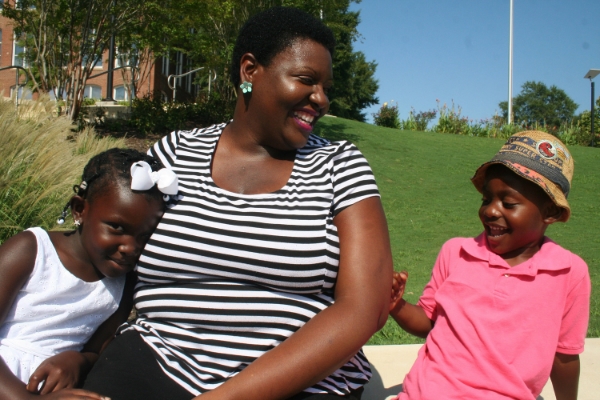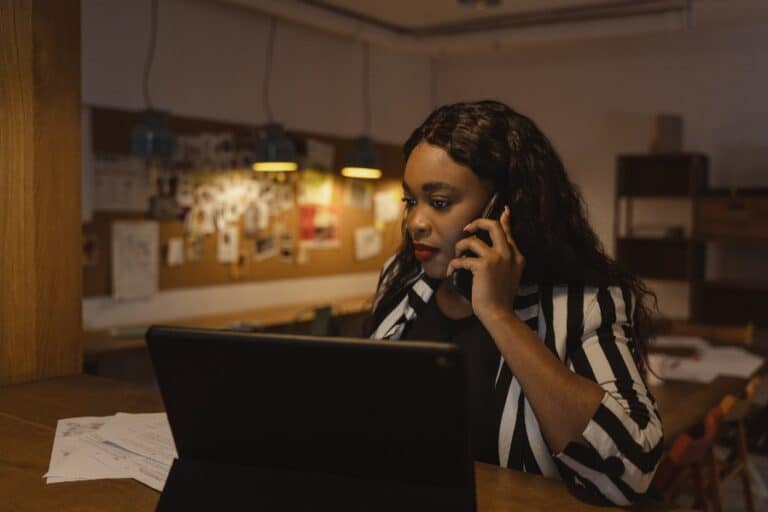Jungle trekking at Christmas in Malaysia.
Weeks exploring New Zealand.
Snorkeling in Thailand.
During the greater portion of my twenties, I lived free and wild, teaching in Japan and exploring Asia to satisfy my childhood wanderlust. For me, the single thing worth living for was a passport and a good book, not weddings and white dresses.
I knew that having already earned a Masters degree in my early 20s, I wanted to go on to earn a PhD in a discipline that I loved. I knew that I wanted to continue exploring the world and I knew that writing and teaching were inextricably a part of the vision I had for my life. As much as I loved children, my dedication to these pursuits seemed larger than a commitment I could make to my then traditional notions of marriage and family.
Asleep one night on my tatami mat floor, I was awakened by a phone call. My mother needed immediate surgery to remove the colon cancer they discovered on a routine health screening. Eventually, I returned home. I became acutely aware of the role of mother as I defined my role as daughter.
When my mother’s cancer, which would go on to spread to her lungs and liver, was in remission, I gave myself permission to travel again and relocated to the border of Arizona and Mexico. On mom’s visits we spent our time in Mexico eating shrimp tacos from street vendors, shopping for pottery, and immersing ourselves in Mexico’s vibrant culture, or picking oranges and grapefruits in Arizona’s orchards.
For me, the single thing worth living for was a passport and a good book, not weddings and white dresses.
About a year into desert living, I woke up wanting a family and a baby with such intensity that a mild depression took over. My previous preoccupation with booking flights to exotic locales for spontaneous adventures was replaced by recurring dreams of a juicy, grinning dark-skinned baby girl.
When I reconnected with the love of my life when I was 30, we resumed our plans for marriage and starting a family. When the doctor announced that I was pregnant with twins, I burst into tears of joy. The nurse and I did a little dance when the ultrasound image revealed that the sac was in the shape of a heart. I took this as a sign of extremely good fortune.
But we all know that things fall apart: Very early into my pregnancy with my twins, the person I called my best friend and whom I believed would be my husband made another decision—it would be two years before we were able to try and heal from his choice. I gave myself two weeks to cry, scream, and feel gut-wrenching anger and disappointment. I decided that whatever emotional brokenness inside me would be healed for the sake of my twins. I needed to be sharp and clear about who I was at age 31 and what I wanted from life so that I could model emotional wholeness for my children. They were double blessings and, above all, they were very much wanted. I accepted responsibility for my role in my choice of partner and I vowed to regain my course as I listened to God’s voice, which was so indelibly clear in that desert.
They were double blessings and, above all, they were very much wanted.
I was the happiest pregnant woman. My community of sisterfriends and men loved and took amazing care of me. My friend Michelle and her husband became the two official “daddies.” My group of older girlfriends were good company with weekly candlelight dinners filled with a ton of raucous laughter. A woman I barely knew agreed to be my doula. I had three baby showers. My best friends Nikki and Cat flew in or drove to visit me multiple times. Nikki made a beautiful CD of music to play in the delivery room since she could not be present for my scheduled C-section. My other sisterfriend who was a nurse at the hospital came and sang gospel hymns to me, my mother, and the soon-to-arrive babies. My co-workers organized dinner drop-offs for nearly two months after the twins arrived. Thanks to all of them, I understood with such clarity that motherhood was a celebration of life.
When my mother passed away two days before my twins’ second birthdays, my best sisterfriend Clarissa and her mother bought party supplies, a cake, and games, and organized a birthday party for them while my dad finalized funeral arrangements. Before she passed, I arranged grief counseling for our family with my mother present. She told us that she had had a good life, that she loved us, but that above all we should honor her by enjoying our lives.
My mother’s eldest sister Aunt J passed away less than three months after my mother died. Losing my mother and her sister was sad, but it was losing my second mother, Aunt E, one year later and days before Christmas, that almost broke me. She passed away on a train en route to my house so we could have dinner and exchange Christmas gifts. In total, I lost eight people in my life in the course of two years, including an uncle and his son who followed less than two months later. If ever anyone needed a mother, I did.
So what does a single mother do when all of her own mothers pass on and her village is made smaller? She makes two decisions: live and thrive. Any other recourse involves harm to her children and that will never do. She rejects notions of motherhood which do not speak to her and she defines motherhood for herself with no care or willingness to take on other’s criticisms. This is my life to lead.
My motherhood journey has not been an easy path: My son has had to have several amputations on his foot for a rare form of gigantism when he was 2 and 3 years old. But as an academic, I endlessly research the best resources to help me raise my twins. I build community. I have a phenomenal father who helps me co-parent and supports me at every turn. I have formed a family for myself and for my children in The Sisterhood of Single Moms, a phenomenal group of single mothers of all ages and ethnicities at my church who are committed to faith-based parenting and to a desire to be happy, whole mothers.
So what does a single mother do when all of her own mothers pass on and her village is made smaller? She makes two decisions: live and thrive.
As a Black mother, I began to grow increasingly frustrated with the images of Black motherhood depicted in the media. I made a decision that I would not conform to traditional expectations of what it meant to be a Black parent. As I continue to define my role as mother and parent, I have given myself permission to make mistakes. These choices have empowered me to remain peaceful, strong, and hopeful in the moments when I have faced not only adversity but the genuine struggles of being single and a parent. As a believer, I refuse to believe statistical data which implies that because my children are being raised in a single-parent household that they will lack. God is a God of wholeness and completion; my own triumphant life informs me of this daily.
Because I often fail to see images and role models of the type of woman and parent that celebrate my values and hopes for my children, I often create my own path. I expose my twins to as much culture and multiethnic communities as possible. We are staples at reggae concerts, zoos, museums, dance performances, science centers, libraries, and every festival that you can imagine. When money is low we put on Fela Kuti and dance in the living room, wear Halloween costumes while baking, or paint at the kitchen table. In the last few months, my 4 year olds and I have gone camping twice, sea kayaking, crabbing, fishing, and hiking.
We take adventures to the beach and we ride horses regularly. Every May, we spend a week on Sapelo Island in Georgia. We sleep late and eat fresh seafood after tiring ourselves out from beachcombing and tootling around the island on golf carts all day.
Climbing Mount Fuji, eating huge bowls of Laksa in Singapore at night, and searching for glow worms or hiking across glaciers in New Zealand were amazing moments in my life, but none compare to the joys of watching my double blessings grow.
I lost my mother too soon, but her death reinforced my navigational belief that life is for the living. Motherhood merely makes the magnitude of being alive that much greater for me. At 36, I am a full-time, fourth-year doctoral student and graduate assistant studying cultural heritage and information science on a full fellowship. I am living a life beyond my own expectation. My double blessings and I have so much fun together. It gives me peace as my mother’s daughter to know that I’m honoring her by living a full and joyful life.

















